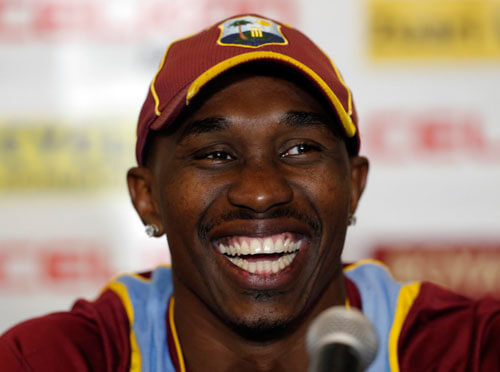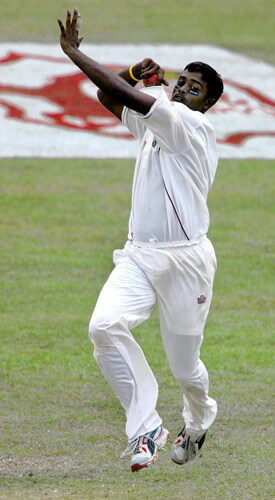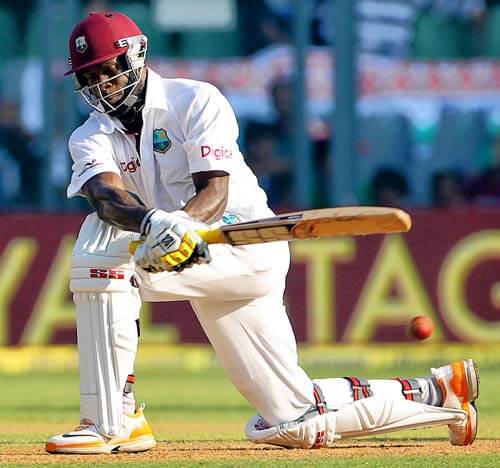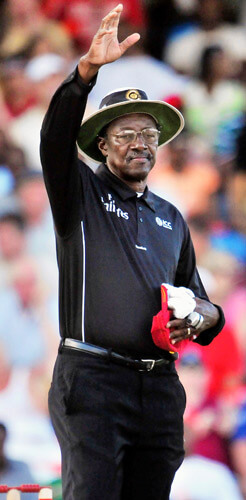One of Trinidad’s most senior government ministers who also happens to be a veteran island cricket administrator has torn into the workings of the Antigua-based West Indies Cricket Board (WICB), exposing what he says is a litany of administrative and logistic mistakes that could one day destroy the region’s premier game.
Gary Griffith, might be Trinidad’s embattled national security minister and under whose watch more than 400 people were murdered in the twin-island republic with Tobago last year, but he still was able to steal some time during the holiday break to provide hitherto unknown details about the simmering wages and salaries row between the board and the senior West Indies team.
The row involving the West Indies Players Association (WIPA), the board and the players themselves led to the senior team abandoning the late last year Test, Limited Overs and Twenty20 cricket series between the West Indies and India on the sub continent.
So much bad blood has flown between the two boards ever since the tour abandonment that the Indians have moved to sue the WICB for $42M in lost earnings from the player walk out and are likely to win and get paid.
Some of the players have also turned their anger towards WIPA, the umbrella body that represents most of today’s active players, saying it had colluded with the board to effect significant pay cuts that most reasonable people would reject on any day of the week.
In his Trinidad Express Newspaper column, Griffith argued that the decline of the quality of the game in the region has little to do with “the lack of talent, but rather poor management. This latest fiasco reinforces that point.”
Detailing the level of the pay cuts that have led to what many think would be irreparable damage between the players and administrators, Griffith contended that players had a right to rebel because the board and WIPA had insulted their intelligence by not only drastically cutting salaries and endorsement entitlements but by also arguing that the savings from the reductions would have been spread around to other players to participate in WICB-organized tournaments and earn but a mere pittance compared to the internationals.
“The initial and wrongful suggestion is that the players were greedy. That is one side of the story. The other side is that there was a massive cut in their salaries, without their input or knowledge.
Adamant that he has the correct figures, here is what he had published in the island’s leading newspaper, noting that any player who puts up with this cares more about being patriotic than earning a living for himself.
“Test match fees slashed from US$18,000 to US$5,000 per player. One-Day match fees slashed from US$5,000 to $1,700 per player; World Cup fees for this year slashed from US$300,000 per player to US$50,000 per player.
With regard to the present tour of South Africa, whereas the previous contract would have given each player over US$33,000 per match, they are now earning a little over US$16,000.
Additionally, WICB previously gave players 25 percent of what was received from the International Cricket Council (ICC).
Now with the new MOU, the players are getting nothing
Players with worldwide ratings and in highest demand in international cricket in every country, involving tournaments such as Big Bash, IPL etc, such as Dwayne Bravo and Pollard, each earn over US$12,000 to US$20,000 per match.
Playing for the West Indies, they are paid a little over US$1,500, calling the current fees in place akin to those paid to indentured servants in the colonial era.
Some of the rebel players including Dwayne Bravo and Keiron Pollard who are suspected of leading the cricketing insurgency in India, have since been sacked and might not play in this year’s prestigious Cricket World Cup in Australia-New Zealand.



























